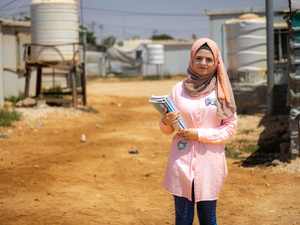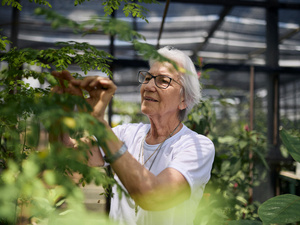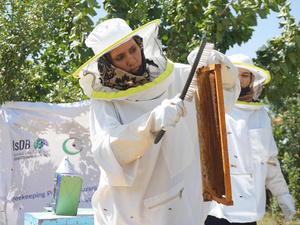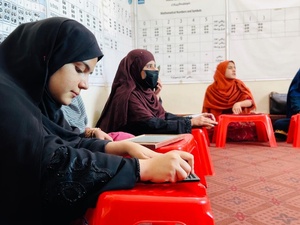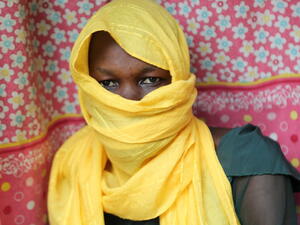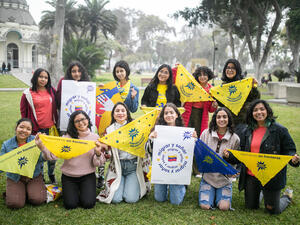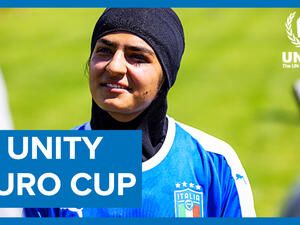Witchcraft allegations plague southern Chad's camps
Witchcraft allegations plague southern Chad's camps
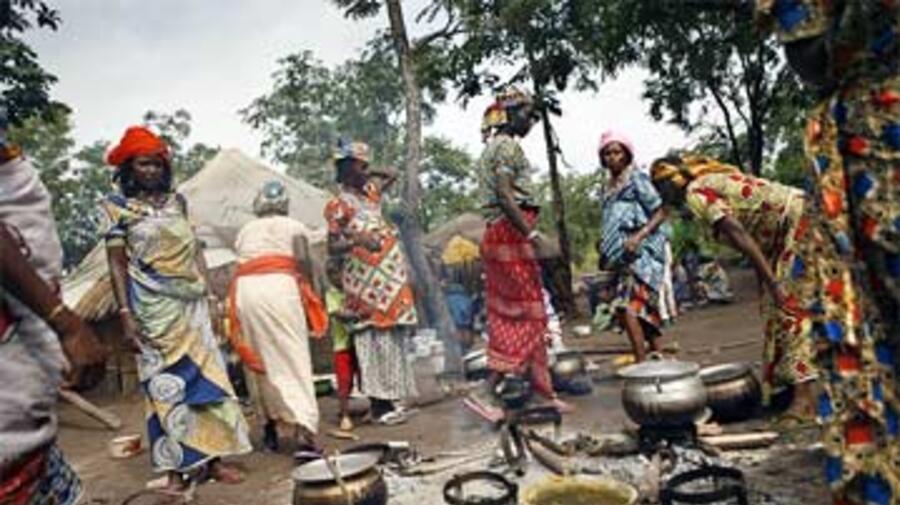
Some women in Dosseye camp have been accused of witchcraft, which UNHCR hopes to debunk through a health and community awareness campaign.
DOSSEYE, Chad, October 25 (UNHCR) - When 11 refugees fell ill and died within a single week earlier this year at the Dosseye refugee camp in southern Chad, witchcraft allegations swirled through the community and led to cases of assault and arson.
In one incident, three siblings died within an hour and Adjara*, a widowed mother of eight in the camp, was attacked by 15 others who accused her of cursing the children.
"They burnt my house and even though I swore on the Koran that I am not a witch, they wouldn't believe me," explained Adjara as she prepared dinner under the protection of the camp's gendarmes.
Adjara, an ethnic Peul refugee from the Central African Republic (CAR), has yet to be accepted by a community in any of the three camps in south-western Chad. Her original camp, Dosseye, is host to over 5,500 of the 45,000 CAR refugees in Chad. Two-thirds of the refugees are ethnic Fulbé/Peul, who recognize both the existence of witches and the role of the traditional healer and exorcist.
Josiane Nguerebaye, from UNHCR's community services team, said after the 11 deaths - mostly from diarrhoea, malaria and malnutrition - "other refugees really lost faith in their ability to recover from illnesses and lost faith in modern medicines." Many went exclusively to the traditional healers in the camps for treatment, and if they succumbed to their illnesses it was often explained as witchcraft.
"People had stopped drinking the well water and started getting their water from the swamps and rivers around the camp. Others were either not going to the health clinic or were going there too late," said Nguerebaye. "It caused huge [health] problems."
Seven awareness sessions were organized by UNHCR and its partners to try to end this vicious circle that had refugees turning away from modern medicine.
"The sessions weren't about the existence of witches or witchcraft, but instead focused on health, sanitation, community cohesion and the danger of accusing people without evidence," explained Dosseye's camp manager, Gatsia Tounakissia, who works for UNHCR's partner organization, CARE International.
But Assiatou* has no doubt about the presence of witches and spirits among people. With her CAR government papers in front of her, the 43-year-old woman explained she has been a certified healer, exorcist and clairvoyant since she was 15 years old.
Since arriving in Chad as a refugee a year and a half ago, 30 people have come to her for treatment but she admits that she can't heal everyone. For illnesses like malaria or diarrhoea, she says, she refers people directly to the camp health clinic.
In a July court decision, a Chadian judge in Goré cleared the four accused of witchcraft of any wrongdoing. The judge also clarified that the CAR certificates verifying the status of some women as exorcists and traditional healers were not recognized in Chad.
In addition, Yambenou Clestin, a community health officer in Dosseye, feels the awareness sessions are starting to work: "The [Cooperazione Internazionale-run] health clinic has begun to see an increase in use and refugees are reacting sooner when they get sick."
However, despite the verdict, the atmosphere in the camps remains hostile toward the acquitted women and several, including Adjara, have yet to return to the main camp communities. While humanitarian workers in southern Chad work to reintegrate the women, it's clear that violence and accusations could flare up again if other refugees fall ill.
By Bryn Boyce in Dosseye, Chad
* Names changed to protect refugees' identity

